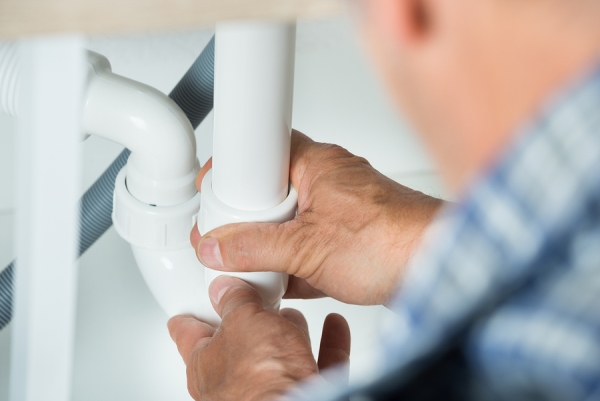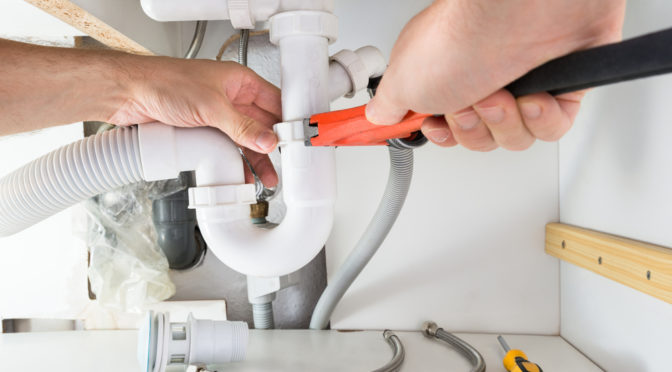Temporary Tips for Emergencies: What to Do Until Help Arrives
WebsiteWe've encountered this great article involving What to Do During a Plumbing Emergency listed below on the net and reckoned it made sense to share it with you here.

Plumbing emergency situations can strike any time, triggering anxiety and prospective damage to your home. Whether it's a ruptured pipeline, a stopped up drain, or a leaky tap, recognizing exactly how to handle the situation till a specialist plumbing technician arrives can conserve you from additional problems. This article gives crucial emergency situation plumbing pointers to aid you reduce damage and restore control during a pipes dilemma.
Turn Off the Water
The primary step in any pipes emergency situation is to shut off the water. For local issues, such as a dripping faucet or toilet, shut off the valve near the component. In the case of a major leakage or burst pipeline, find your home's primary water shut-off valve and transform it off instantly. Recognizing the place of these valves in advance can save beneficial time during an emergency situation.
Turn off Your Hot Water Heater
In specific emergencies, such as a ruptured pipe, it's smart to shut off your hot water heater. This prevents getting too hot or damage to the system when water stops streaming. Turn off the power supply to the hot water heater (electric or gas) and let it cool to prevent possible risks.
Momentarily Stop a Ruptured Pipe
A ruptured pipeline can result in substantial water damage in mins. To mitigate the problem:
Call an expert plumber right away to resolve the problem permanently.
Have an Emergency Situation Pipes Kit
Prepare a fundamental pipes emergency kit to manage small issues efficiently. Your package should include:
Having these devices handy can make a substantial difference in your ability to handle emergency situations.
Unclog Drains Pipes Securely.
A clogged drain can be a discouraging and unpleasant concern. Here's how to tackle it:.
If these methods don't work, avoid using excessive force, as it may worsen the blockage.
Manage Overflowing Toilets.
An overruning commode can create prompt disorder. Below's what you must do:.
Address Tiny Leakages with Momentary Fixes.
Small leakages can swiftly end up being significant troubles if left uncontrolled. Utilize these short-term fixes till expert help arrives:.
While these repairs aren't irreversible, they can assist reduce water loss and damages.
Deal With Frozen Pipes Meticulously.
In chillier environments, icy pipes are a typical emergency. If you presume a frozen pipeline:.
Know When to Call a Specialist.
While quick fixes can assist momentarily, certain pipes issues need prompt expert focus. Call a plumbing if:.
Quickly calling a professional guarantees the problem is resolved properly and stops more difficulties.
Prevent Further Damage.
Taking fast action to reduce damages can conserve you money and time in the long run. Right here's exactly how:.
Verdict.
Pipes emergency situations can be overwhelming, however with the appropriate expertise and devices, you can manage the situation efficiently up until help arrives. By turning off the water supply, addressing small leakages, and making use of short-lived solutions, you can decrease damage and keep your home safe. Remember, these tips are short-term options; constantly seek advice from an accredited plumbing technician to manage the source of the issue. Prep work and quick thinking are your best allies in any pipes emergency situation.
How to Manage a Plumbing Emergency Until Help Arrives
Plumbing emergencies can be stressful, but keeping calm can help minimize damage to your home. Below are steps to handle a plumbing emergency, but always call a plumber for assistance. It’s safest to have a 24/7 emergency plumbing team readily available, so keep their number in your contacts list for easy access.
Shut off the water: Act quickly to turn off the water source during an emergency. For toilets, turn the water valve at the base or behind the commode. For larger emergencies or flooding, turn the main valve in your home clockwise. Turn off the water heater: Prevent damage to your water heater by switching it off after shutting off the main valve. If you have a gas water heater, turn off the gas supply first. Must Open drains and spigots: Even after shutting off the main valve, your pipes may still have water. Reduce potential damage by turning on spigots outside your home and clearing water with the garden hose. Avoid using chemical cleaners during an emergency. Address small leaks: If you find a small leak, use the plumber’s tape or place rags and towels around the pipes to prevent further damage. Inform the plumbers about these leaks upon their arrival. Call for help: Remember to call a plumber as soon as the emergency occurs. An early call can provide initial assistance and help determine if the situation is too dangerous. If professionals or government officials advise you to leave your home during an emergency, listen and prioritize your safety. Plumbing Emergency Examples and Immediate Fixes
Dealing with a plumbing emergency can put enormous stress on homeowners, leaving them uncertain about the steps to take. This detailed guide delivers concise, direct advice for swiftly tackling typical plumbing dilemmas. It includes actionable measures for dealing with everything from burst pipes to toilets that won’t overflow, helping reduce harm and quickly bring back normalcy.
Burst Pipes
Burst pipes result from intense pressure from various causes like freezing temperatures, corrosion, or physical damage that leads to a pipe rupturing.
Solutions:
Immediately shut off the main water supply to halt the flow of water. Drain the remaining water in the system by opening all cold water taps to prevent further damage. For a temporary fix, use a pipe repair clamp or wrap a piece of rubber around the burst section and clamp it tightly with hose clamps. Call a plumber for a permanent fix. Severe Leaks in Faucets or Toilets
Solutions
Locate and close the local shut-off valve to stop the water flow to the leaking fixture. Place a bucket underneath to catch any drips and reduce damage. In the case of a toilet, lift the float in the tank to prevent more water from entering the bowl and turn off the water supply valve. Contact a plumber to address the problem correctly. Leaking Water Heater
Turn off the water supply to the leaking water heater. If it’s electric, switch off the power at the circuit breaker; if it’s gas-powered, turn off the gas valve. Avoid attempting to repair yourself, as this may involve significant danger and complexity. Seek the assistance of a professional plumber who can provide a safe and appropriate resolution. https://www.showtimeplumbingllc.co/expert-tips-for-managing-a-plumbing-emergency-until-help-arrives

I'm just very serious about Expert Tips for Emergency Plumbing Repairs and I'm hoping you enjoyed reading the entire piece. Sharing is caring. You won't know, you could be doing someone a favor. Thank-you for going through it.
Click Here